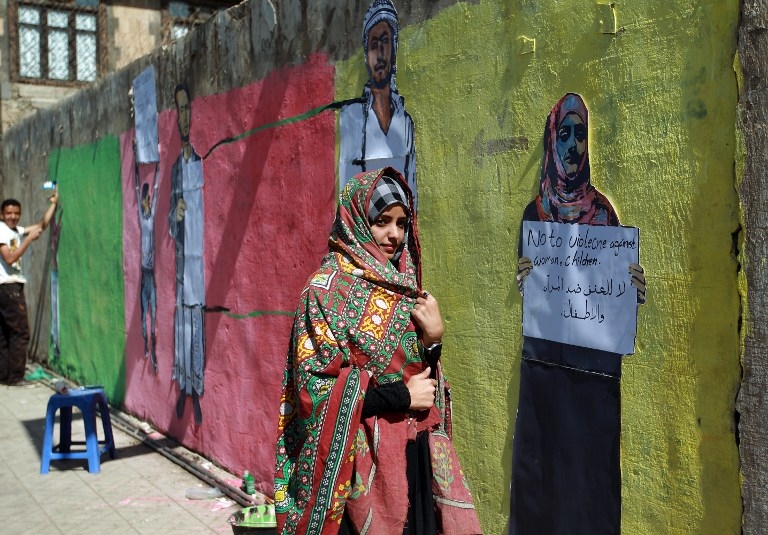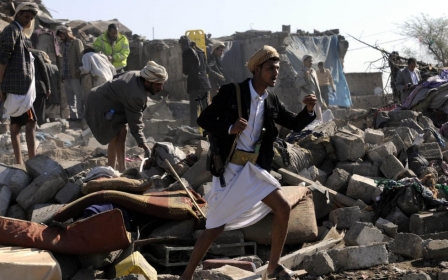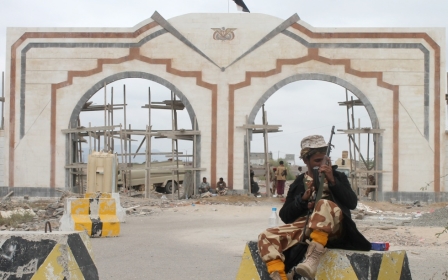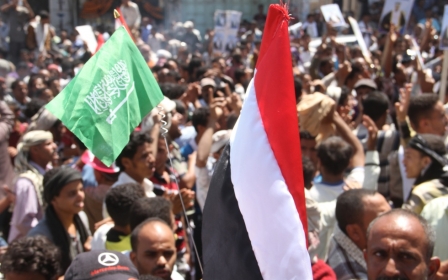Yemen: 'Death is closer to us than ever before'

Basma Qassim, a 20-year sociology student who grew up in New York and now lives in the southern port city of Aden, describes hearing explosions and hiding with her family in the basement as army units loyal to president Hadi battled with Houthi militants advancing on the city. "We haven't been sleeping... I have to admit it's psycholigically damaging. Death is closer to us than ever before," she said.
The immunity granted to former president Saleh, who has been accused of allying with the Houthis, should be rescinded and the former strongman should be prosecuted "ASAP," Basma says.
Abdulkader al-Guneid, a physician and activist from the central city of Taiz where there have been mass anti-Houthi protests, says he is "elated" by the airstrikes on the Houthis. Once the strikes are over, he says, "Saleh and the Houthis will be finished" and Yemenis should never again allow a militia to dominate or control Yemen's finances. Al-Guneid says, "There will be some kind of land operation aided by Saudi strikes. There will be no civil war. They will defeat the Houthis sooner than you expect."
20-year-old Hussain al-Bukhaiti, a pro-Houthi activist in Sanaa, says the airstrikes have strengthened the Shiite militia by uniting Yemenis against a common enemy: Saudi Arabia. He describes the Houthis as guerilla fighters embedded in the population. "They are everywhere, in every house, they are fathers, they are sons, you can't take them out by attacking army bases."
Ammar Basha, 34, a filmmaker from Sanaa, says he is concerned that the aerial campaign will embolden al-Qaeda in Yemen. "They [Saudi Arabia] claim they are hitting Houthi positions... but actually they're destroying the infrastructure of our army with airstrikes."
Sarah Jamal, a 27-year-old researcher and sociologist living in Sanaa, describes the “double burden” that the strikes have placed on women, who are being asked by their families to stop going out to work because of the danger. Preparing for a third night of heavy airstrikes, Sarah says “we wait until the mornings reveal what happened the night before.”
Middle East Eye propose une couverture et une analyse indépendantes et incomparables du Moyen-Orient, de l’Afrique du Nord et d’autres régions du monde. Pour en savoir plus sur la reprise de ce contenu et les frais qui s’appliquent, veuillez remplir ce formulaire [en anglais]. Pour en savoir plus sur MEE, cliquez ici [en anglais].




